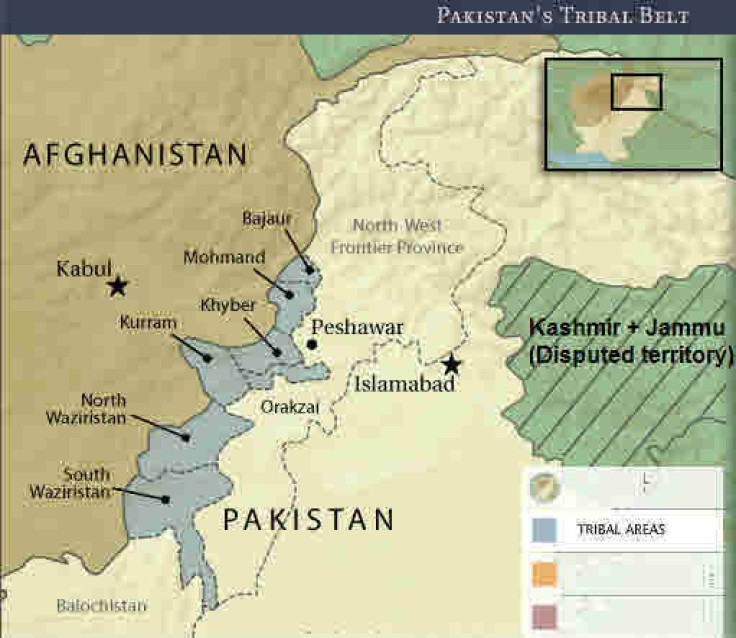Pakistan turns to China as the U.S announces $800 million aid cuts

Pakistan's increasingly "close and effective defence ties" with China will allow Islamabad to "fill the gap" arising from the prospect of reduced military aid from the United States, a Pakistani official has said.
The allegations that Pakistan is now turning to China to the detriment of the U.S came as the Obama administration decided to suspend 800 million dollars in military assistance to the country.
Since the death of Al Qaeda leader Bin Laden on Pakistani soil on May 2 during a secret U.S military raid in Abbottabad, the relationship between the two countries has been tensed. And despite earlier insistence from both governments that efforts would be made to try and salvage their friendship and to work on a better cooperation, the U.S showed last week just as much they were annoyed by the Pakistani authorities' latest cutback on US trainers, and the limits on visas for US personnel.
White House Chief of Staff William Daley confirmed on Sunday a New York Times report that the Obama administration had held off a third of $2 billion in security aid.
The United States provides about $300 million a year to reimburse Pakistan for deploying more than 100,000 troops along the Afghan border to combat militant groups, the Times said, while other funding covers training and military hardware.
Pakistan's former ambassador to the United States, retired major-general Mehmood Durrani said the move would certainly be damaging to the relationship as the widespread view in Pakistan is that the country has been fighting America's war, and Washington must pay for it.
"This is something that they have to pay, and if they don't then it is breach of agreement and breach of trust."
The two countries are at loggerheads over Pakistan's relationships with militant groups. Washington had already warned last month that it would not continue the same levels of military aid to Pakistan unless its military cut ties with the militant groups it has nurtured in the past, and launch ground operations in its North Waziristan region, which the Obama administration says is a hub of militants from around the world.
However, responding to the U.S accusations, Pakistani authorities have maintained the government is doing all it can to fight militants, especially as the militant groups are responsible for violent insurgencies which disturb the stability of the country and have left thousands dead.
Ayesha Siddiqa, an expert on the Pakistan military, downplayed the military impact of the cuts, saying it was not "substantial enough to immediately change policy."
"Is it going to majorly undermine operations? I don't think so."
Siddiqa warned that the U.S cutback might bring the military to grow closer from the militants as they might try to negotiate with them rather than fight them.
"If the partnership frays," she said. "Pakistan is no longer seen as fighting America's war. You can negotiate with militant groups then."
Other analysts have also warned that the area that risks being the most affected by the cuts is Pakistan's economy as the Coalition Support Fund, is not aid, but reimbursements for money already spent on military operations.
The money goes straight into the general treasury so by holding back these payments the U.S know the country's finances will be the first hit by the cuts.
"America understands that Pakistan needs money," Saddiqa said. "Pakistan is insolvent. It cannot disengage (from the United States), so eventually it will turn around."
"Military aid is just an indicator of what American can do," she added. "If they pull back economic aid as well, everything else would dry up, including the multilaterals."
In addition, the U.S move could not jeopardize negotiations with the International Monetary Fund, which is propping up Pakistan's economy with a $11 billion loan program.
"The short-term effect would be more political than economic because it sends out a negative signal that Pakistan and U.S. relations are not going well at this moment," said Asif Qureshi, director at Invisor Securities Ltd.
U.S. support was pivotal to securing an agreement in November 2008 for an $11 billion IMF loan to financially-strapped Pakistan however, by August 2010, the IMF had stopped releasing funds as it complained about Pakistan's patchy implementation of fiscal reforms that had previously been agreed upon.
While China's relationship is very different from that of the U.S- it is the single largest arms supplier to Pakistan- having another powerful ally may only benefit Pakistan from a geopolitical point of view. Despite both countries officially sharing an amicable relationship, the U.S has been critical of the Pakistani government and military's involvement with militants groups for years. As the relationship now deteriorates and suspicions are increasing, China can help support Pakistan and at the same time as it enlarges its sphere of influence in the Asian Pacific region.
© Copyright IBTimes 2024. All rights reserved.





